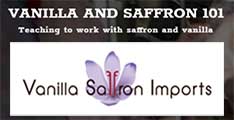Sadie Dingfelder. The Basque people have lived in the western Pyrenees for upward of 7,000 years. Their language has no relationship to any other living tongue — and that’s helped them hold on to their cultural identity and ancient traditions, Linn says.
“The Basque have been doing things their way for a long, long time, and they’ve retained a lot of that very early European culture,” Linn says.
Folklife (Wednesday through July 4 and July 7-10) is bringing 332 Basque people to D.C. to share aspects of that culture, including shipbuilding, singing and shoe-making. Smithsonian staff also built a frontoia, or handball court, on the Mall to serve as a focal point for the festival. These typically outdoor courts serve as de facto community centers, Linn says.
“Every Basque town, from the big cities to the tiny villages in the countryside, has a frontoia,” Linn says.
Basque handball experts will demonstrate variations of the game on the not-quite-regulation court. (It’s made of wood instead of concrete, and is slightly smaller than usual.) Afterward, audience members can give the sport a go. Next to the frontoia will be a bolatoki, or bowling alley, where you can learn the fundamentals of Basque bowling.
If you prefer sports that involve food, you might enjoy corncob races (lokotz biltzea). This traditional rural sport has participants rush to pick up scattered corncobs and put them into a basket, one by one. Kids can try this throughout the festival at the txiki-txoko (kids’ corner). Races for adults will take place near the frontoia.
If this sounds like a sneaky way to make chores fun, you’re right: Many Basque sports evolved from practical tasks, Linn says. Corncob racing has its origins in the harvest, rock-lifting competitions stemmed from the need to clear fields of boulders, and tug-of-war may have started in coastal villages, where people used thick ropes to haul ships to shore, she says.
You won’t be locked out if your job doesn’t require anything more strenuous than lifting a laptop. Several traditional Basque sports can be played by people of all ages and abilities, Linn says.
“This year is going to be a lot of fun, with a lot of opportunities for participation,” Linn says.



 Lagun bati bidali
Lagun bati bidali Komentarioa gehitu
Komentarioa gehitu








